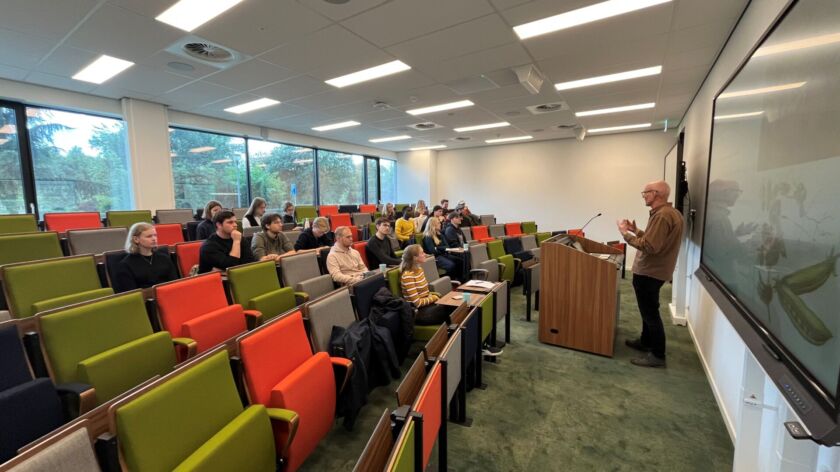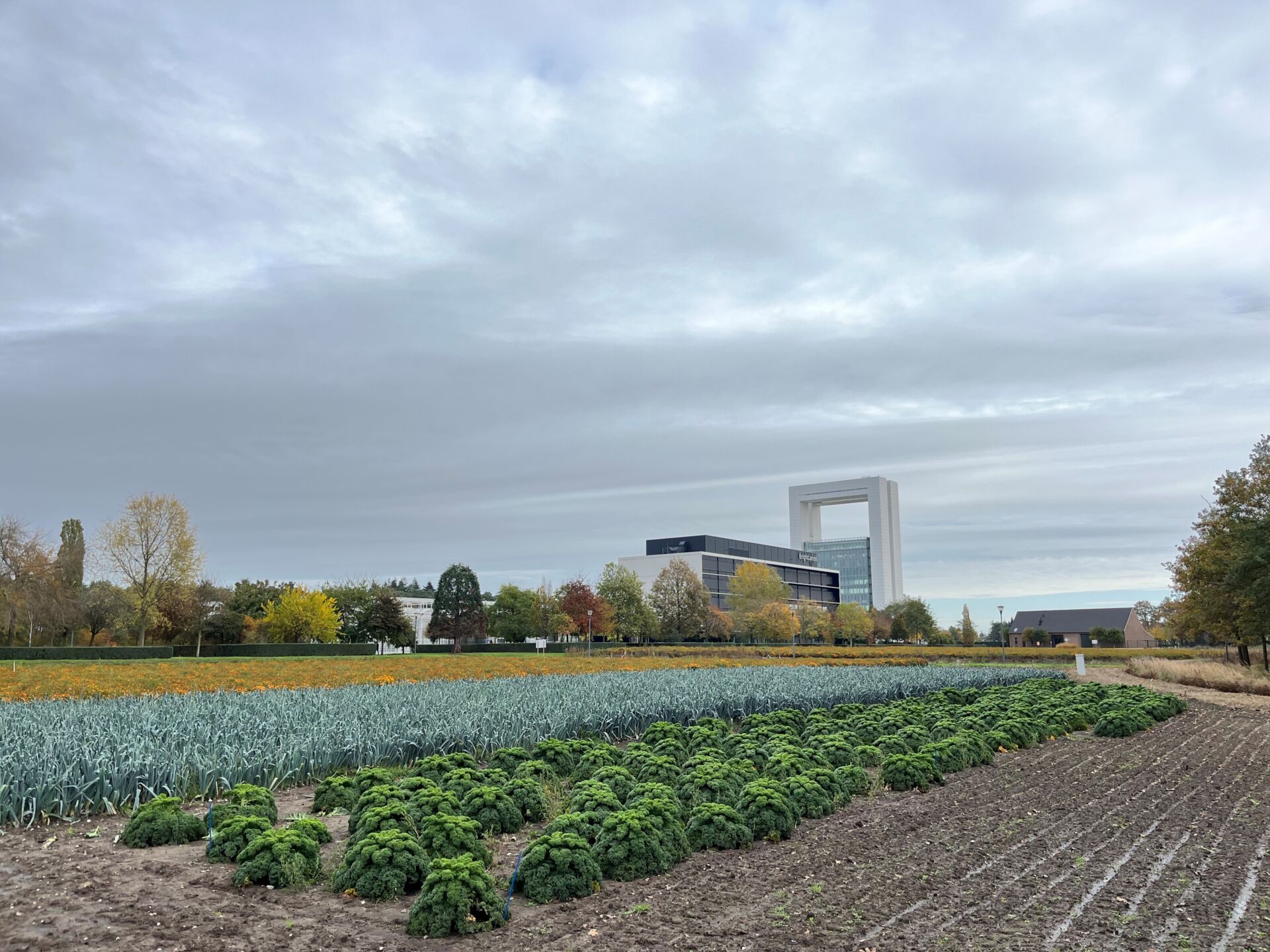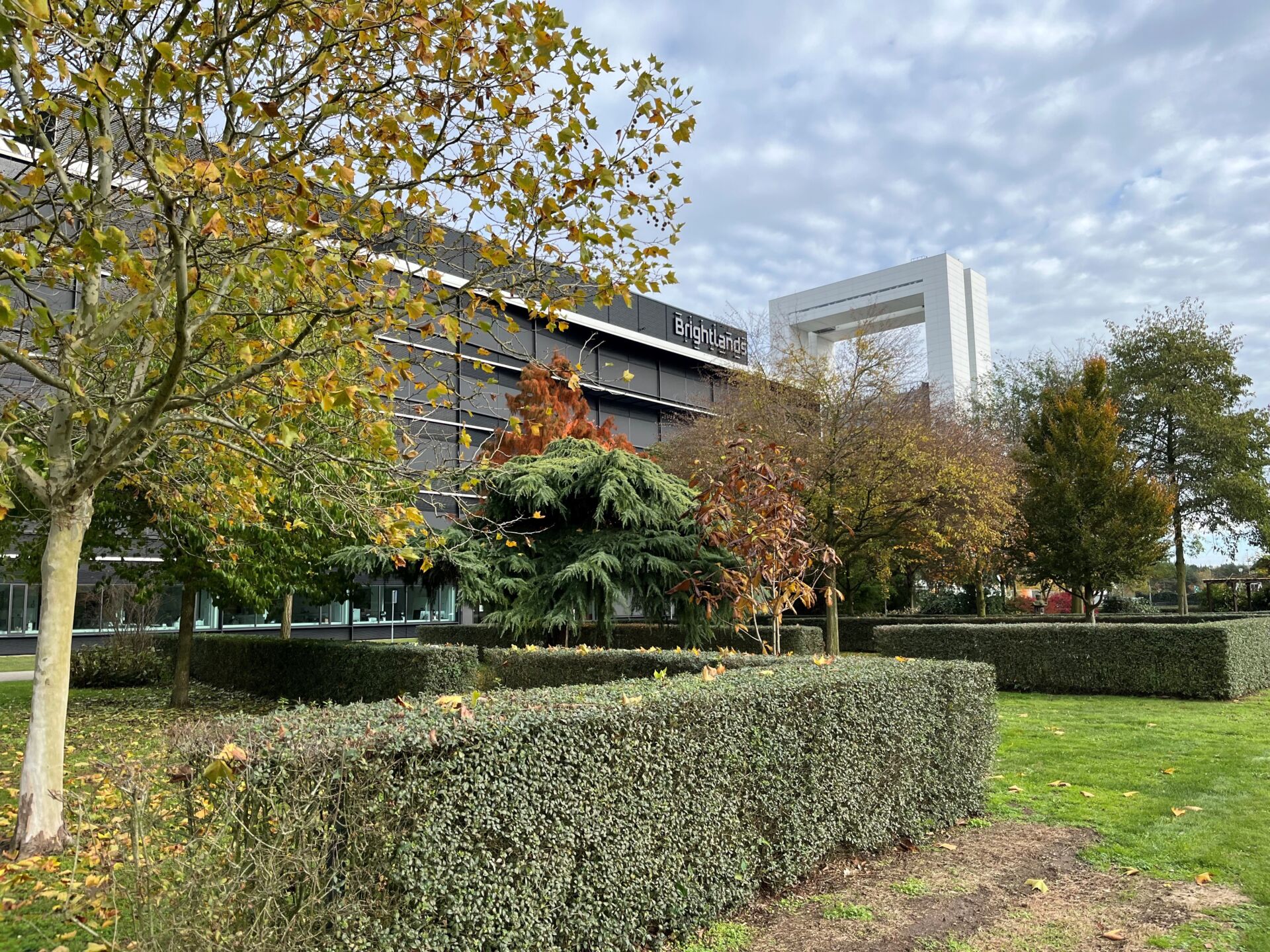New, joint Master’s degree in Biotechnology starts in September on Venlo campus
-
 Radboud University students on the campus in Venlo. Photo: Charles Underwood
Radboud University students on the campus in Venlo. Photo: Charles Underwood
Training students to tackle the big challenges in modern agriculture. That is the goal of the new Master's programme in Crop Biotechnology and Engineering, a collaboration between the universities of Maastricht and Nijmegen. Worth noting: the lectures will take place in Venlo.
Climate change, soil degradation, nitrogen, pests, and diseases. The challenges facing agriculture are growing. At the same time, society expects food security to be maintained.
Master’s Open Day
On 13 November, Radboud University is organising a Master’s Open Day. Crop Biotechnology and Engineering is one of 212 Master’s programmes represented on that day. The Master’s Open Day is also the place to obtain information about other new or relatively new interdisciplinary Master’s programmes, such as Healthcare Humanities and Science for Sustainability (Faculty of Science and Nijmegen School of Management).
A new Master’s programme in Crop Biotechnology and Engineering aims to train students to tackle such challenges with the help of technology. To enter the Master’s programme, students must have a Bachelor’s degree in Biology, Biotechnology or Engineering. University of Applied Sciences graduates can enter by taking some courses or completing a pre-Master’s programme. Students who fall outside the admission requirements based on prior education will be invited for an interview with programme coordinators.
This is the first joint study programme offered by Maastricht University and Radboud University since the two universities signed a partnership contract in 2020 (see box). ‘Radboud University provides the expertise in Biology, while Maastricht has experience in engineering and problem-based learning,’ explains coordinator Charles Underwood.
In the first semester, the biologists receive intensive training in engineering and the engineers in biological concepts. ‘Then they work together in mixed groups,’ says Underwood, who is also Professor of Plant Genome Engineering at the Department of Plant and Animal Biology.
Venlo campus
The lectures of the new study programme take place on the Brightlands Campus Greenport Venlo. Will students be willing to relocate to Venlo, since it is not known as a lively student city? Underwood actually sees the advantages of the campus, he says. ‘The beautiful, green campus will have three hundred studios for students, creating a vibrant environment. But students can of course also choose to stay in Nijmegen or Maastricht and commute to Venlo.’
‘Students can do internships and projects with companies on and around campus’
According to the Professor, the choice for Venlo also offers other advantages. ‘On campus, we have brand new laboratory facilities and students can do internships and projects with companies on and around the campus, which is located in the heart of one of Europe’s most important horticultural regions. This can only improve their chances in the job market.’
Harvesting tomatoes
According to Underwood, future graduates of the new Master’s programme could go into biotechnology research, AI or robotics – for example developing autonomous greenhouses or robots that harvest tomatoes. ‘There are many international companies in the region where, for example, tomatoes, potatoes, asparagus, strawberries, and grasses are bred and grown.’
The Master’s programme will be offered in English and is due to start in September 2026. ‘For the first cohort, we would already be very happy with 15-20 students,’ says Underwood. According to the Professor, the first enrolments are already in.
Partnership between Nijmegen and Maastricht
Following the example of other Dutch universities, the then Rectors of Radboud University and Maastricht University signed a partnership contract in 2020. For the new Master’s programme, Maastricht University has appointed 10 lecturers to the Brightlands Campus, Radboud University three, including Underwood. These lecturers will work partly in Venlo, partly at their home university. The biotechnology partnership also includes four PhD candidates doing research on biotechnology and crop engineering.





